Finding it tricky to choose between cash and card at food markets when travelling abroad? This is a common conundrum for many of us. From my own experiences, I’ve gathered some handy tips that might just ease your decision-making process.
By weighing the pros and cons of both payment methods, you can ensure your culinary adventures go off without a hitch. Let’s make those foodie explorations even more enjoyable!
Key Takeaways
- Using cash helps control your budget and avoids foreign transaction fees. Carrying local currency can save money.
- Credit cards offer security against theft and fraud protection. They also provide electronic records for tracking spending.
- It’s important to know the local currency usage and which payment methods are accepted at your destination.
- Apps like Revolut or N26 show real-time exchange rates, helping you avoid bad deals when exchanging money.
- Research eateries near layover airports using apps like Yelp or TripAdvisor. Planning ahead makes even short stops enjoyable.
Advantages of Using Cash at Food Markets Abroad

Using cash can save you money. You won’t get charged any extra fees for using your card.
Helps in budget control
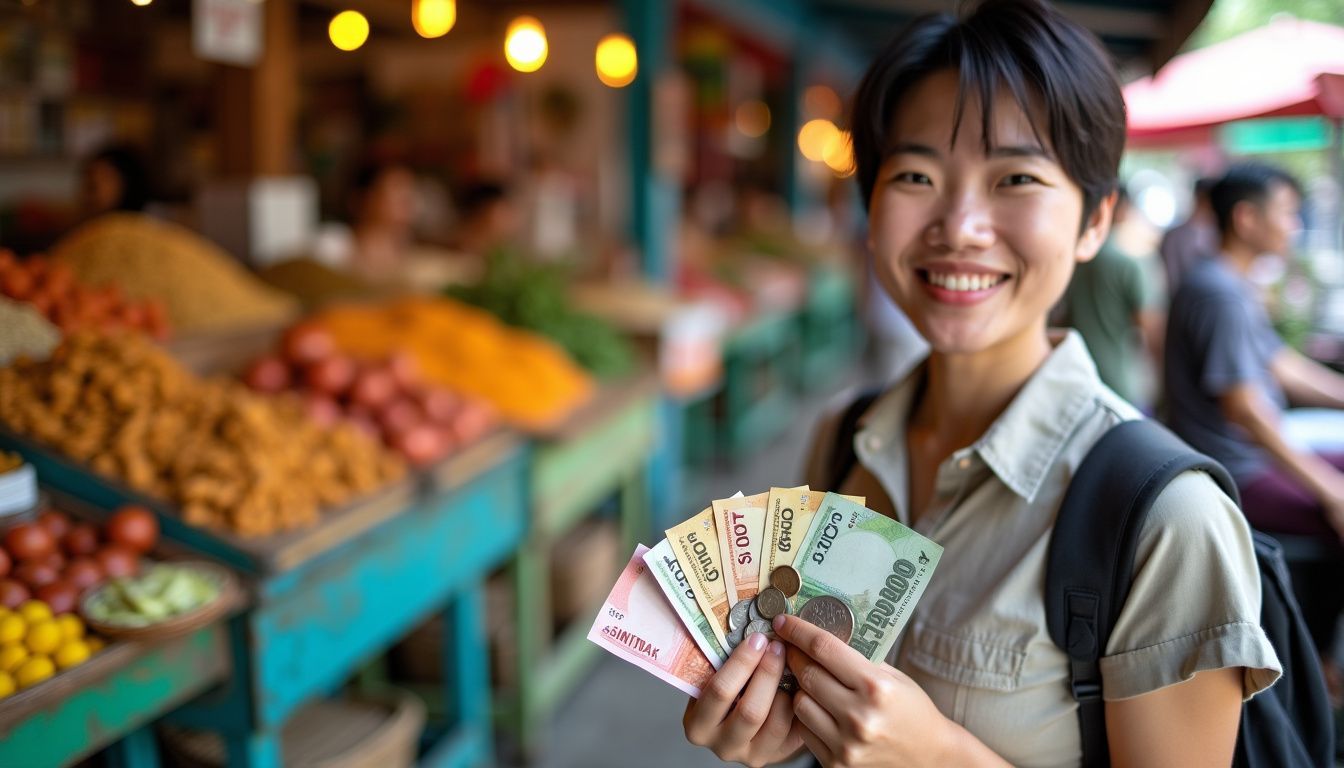
I love using cash at food markets abroad for budget control. I can see money leave my hands, making me think twice before spending more. It is easy to track what I spend without getting lost in card transactions.
Carrying cash helps limit overspending. Unlike credit cards, which can lead to surprise bills later, cash allows for clear spending limits. This also avoids those pesky transaction fees from banks and credit card companies.
Keeping it simple with cash keeps the budget in check.
Avoids foreign transaction fees
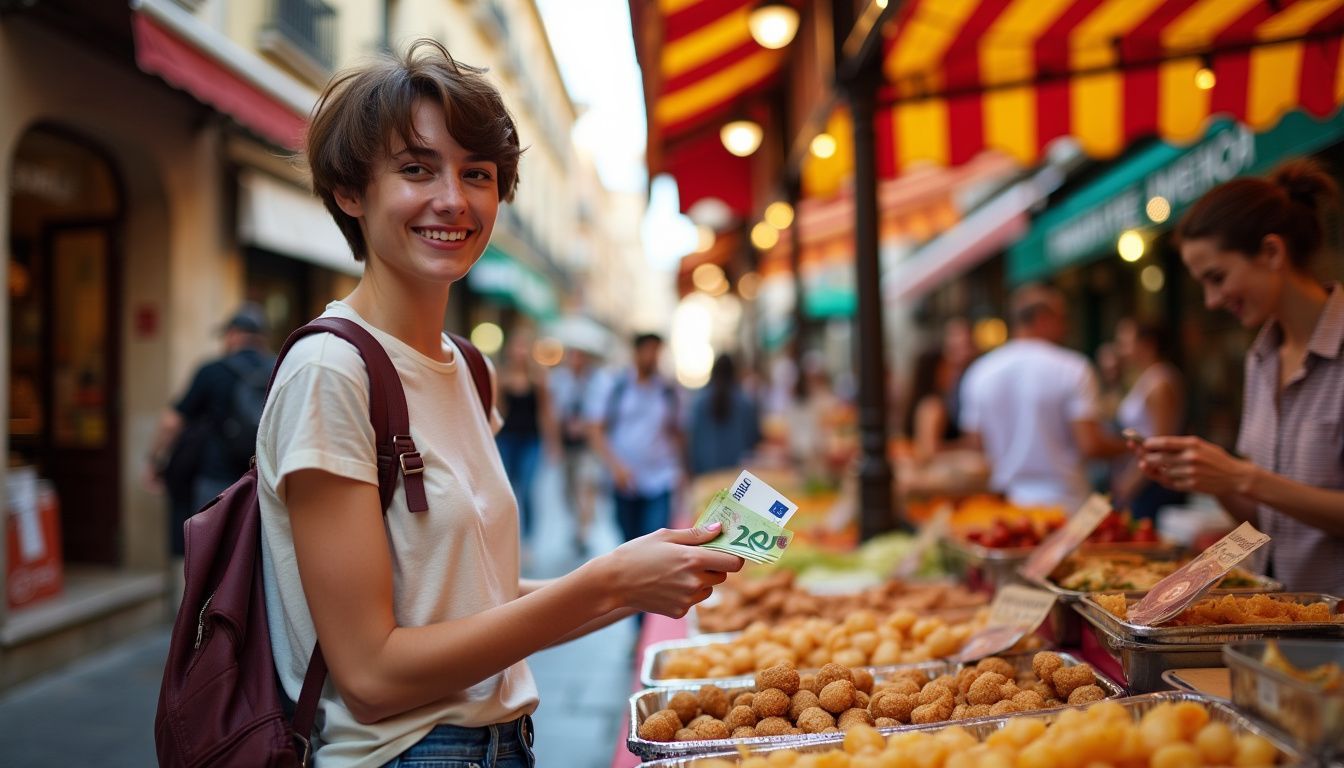
Using cash at food markets abroad helps avoid foreign transaction fees. Card payments often come with extra charges, which add up quickly. I learned this the hard way during my trip to Italy.
Cards like American Express and Visa sometimes charge a fee for every purchase in a different currency. This can be about 3% of what you spend. Missing these small charges is easy…
but they do affect your budget.
Cash lets you stick to your spending plan without surprise costs. During a visit to Spain, I carried Euros in small denominations and it was much simpler for buying tapas and other local treats.
Also, exchanging money before leaving or using ATMs at your destination can be cheaper than card fees. Just watch out for ATM fees! Check if your bank has partnerships abroad that offer free withdrawals.
In essence, keeping some local currency on hand makes sense. both financially and practically for those delicious bites abroad!
Advantages of Using Cards at Food Markets Abroad
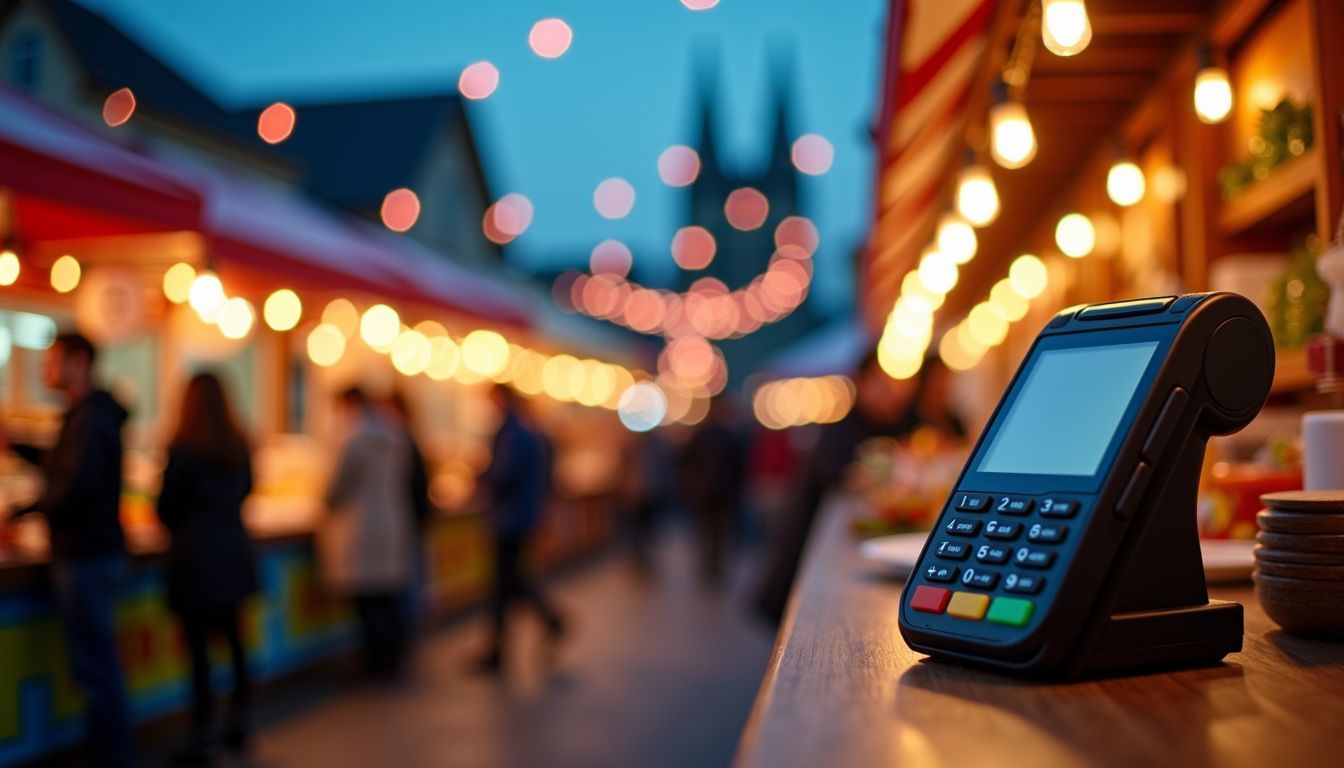
Using cards at food markets can be very secure. They also track your spending, making it easy to manage money.
Ensures added security against theft
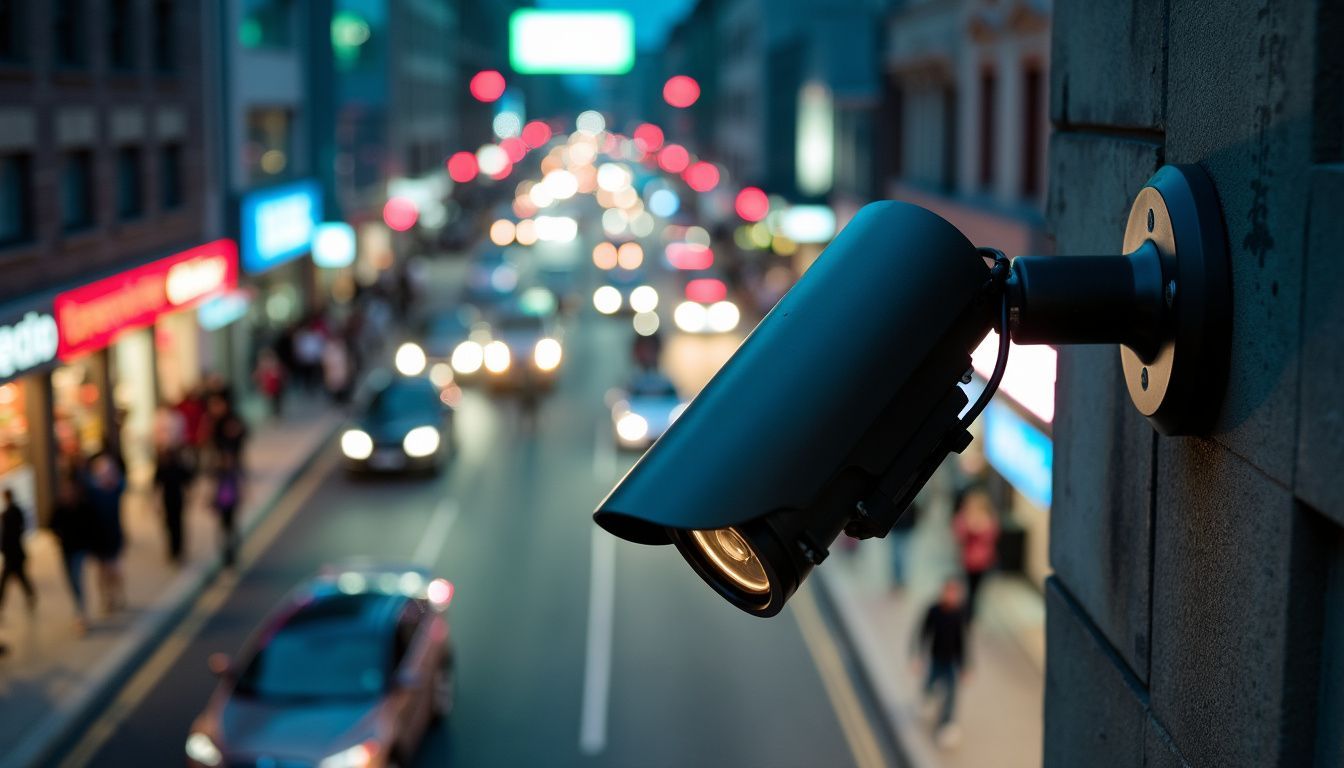
Credit and debit cards have built-in security against theft. If my card gets stolen, I can report it right away. The bank will then deactivate the card, so no one can use it.
Cards also offer fraud protection. Many credit card companies monitor for suspicious activity. This means they alert me if something looks off. Cards are safer than carrying cash because stolen money is hard to recover.
I always feel safe using my Visa Card abroad. – Victoria Williams
Offers convenience and electronic records
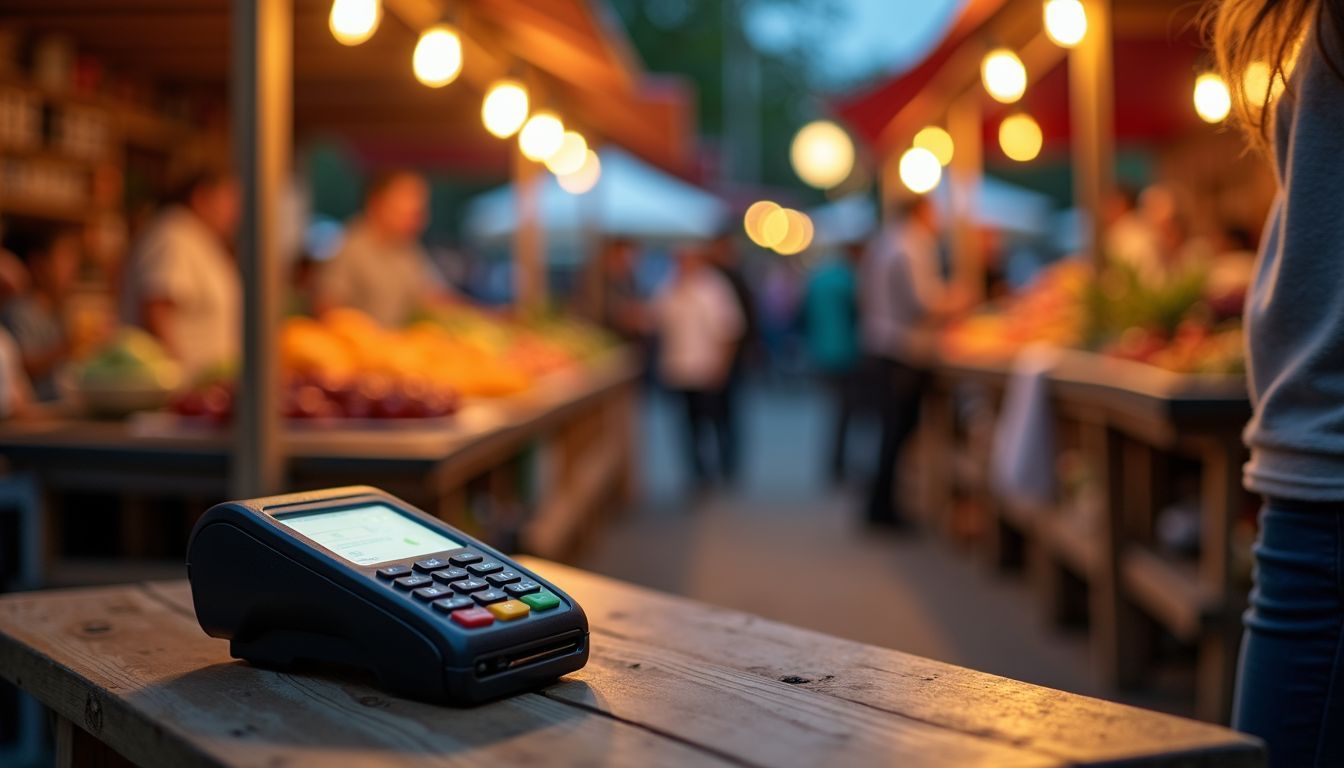
Using cards at food markets abroad makes life easier. You don’t need to carry a lot of cash. Also, it’s quicker to pay with a card than counting coins or notes.
Card transactions create electronic records, which help track spending. After your trip, you can review all your purchases. This makes it simple to stay on budget and avoid overspending.
Key Considerations When Choosing Cash or Card
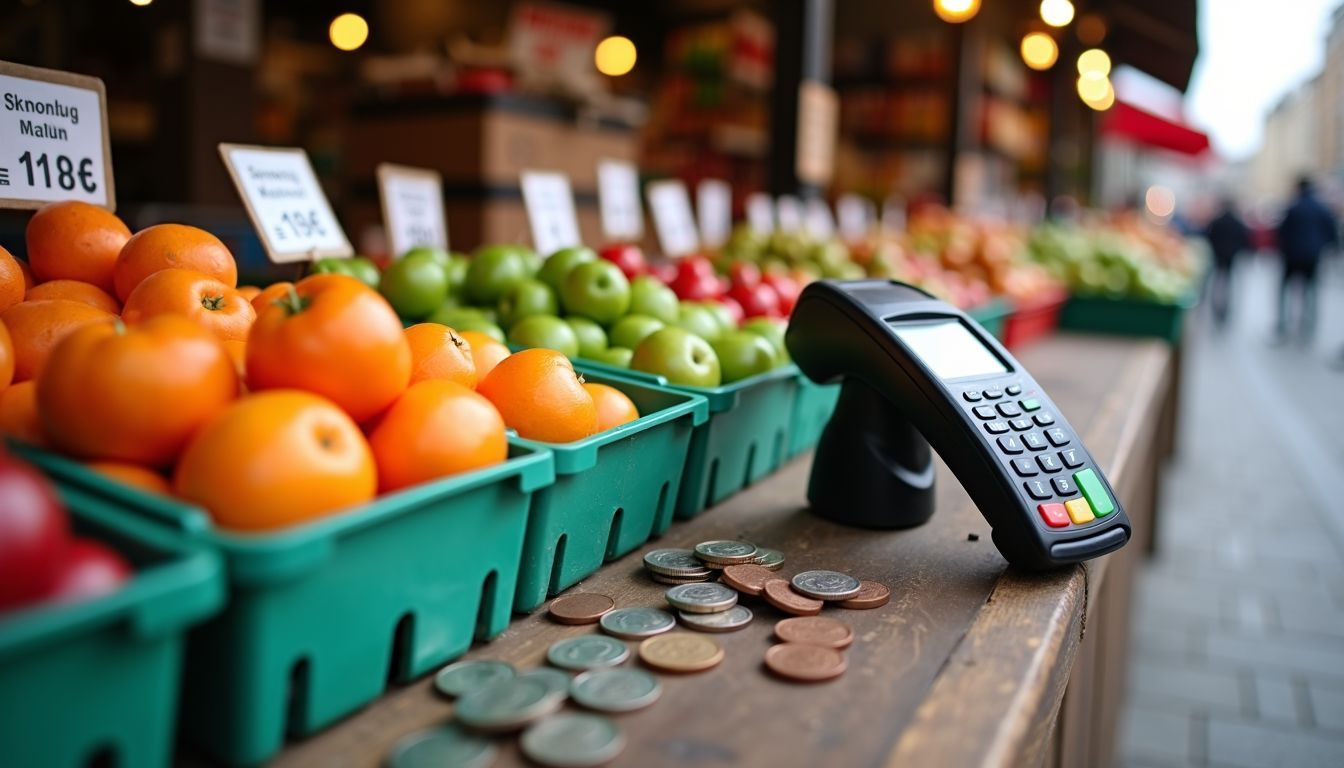
Different places accept different payment methods. Knowing what works best can make your trip smoother… and cheaper!
Understanding local currency usage
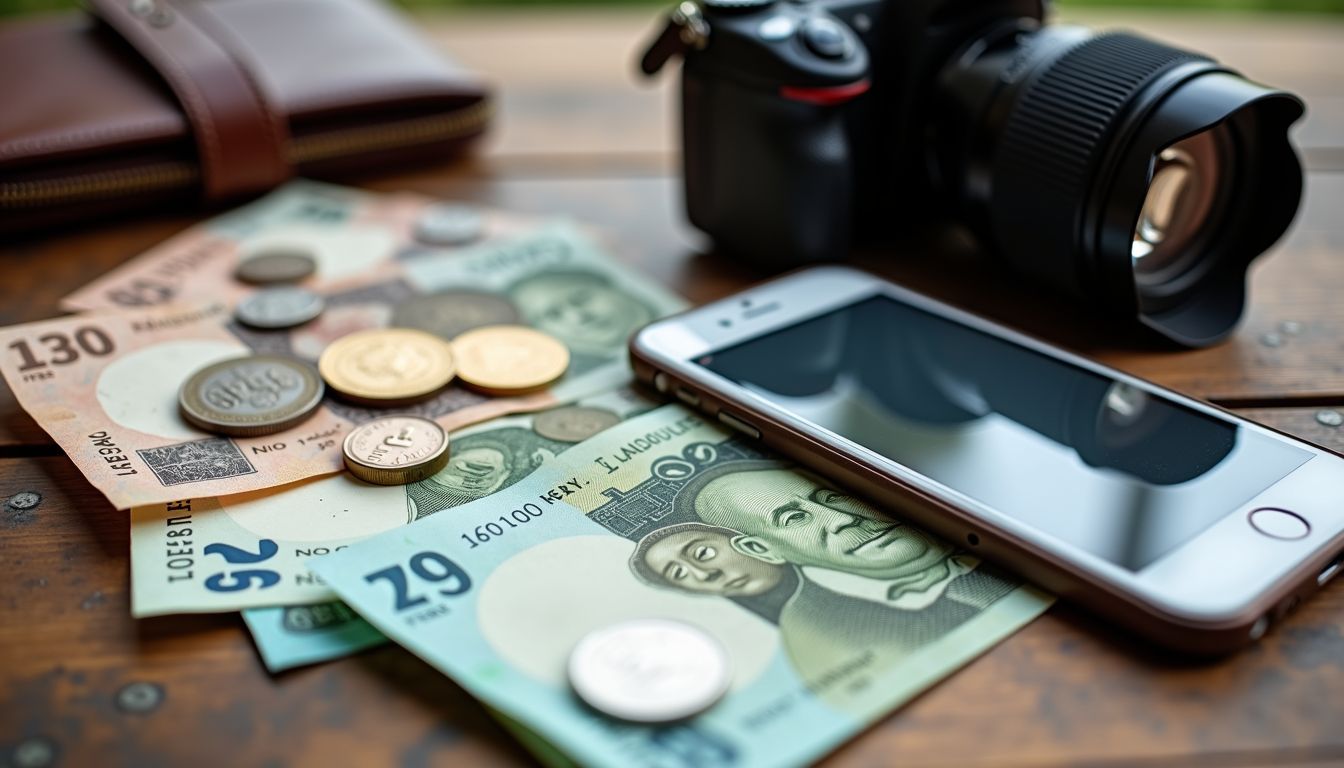
Every country has its own currency. While travelling, it helps to know the local money. I often carry some cash for small purchases, like street food or market items. Some places do not accept cards.
Exchange rates can be tricky. Look up rates before you go. Apps like Revolut or N26 show real-time exchange rates and help avoid bad deals. Understand where to get fair exchange rates—do not change money at airports if possible; they charge high fees.
Next: Knowing card acceptance at your destination…
Knowing card acceptance at your destination

Travelling abroad, I always check if my credit card is accepted at the food markets. Some places prefer cash and might not take cards, especially in smaller towns. This can save trouble later.
Before going on a trip, I research local payment methods online or ask fellow travellers. Knowing this helps me decide between using cash or card at food markets. It also reduces stress over hidden fees from currency exchange or foreign transactions.
Making the Most of Your Layover: Foodie Adventures in Transit
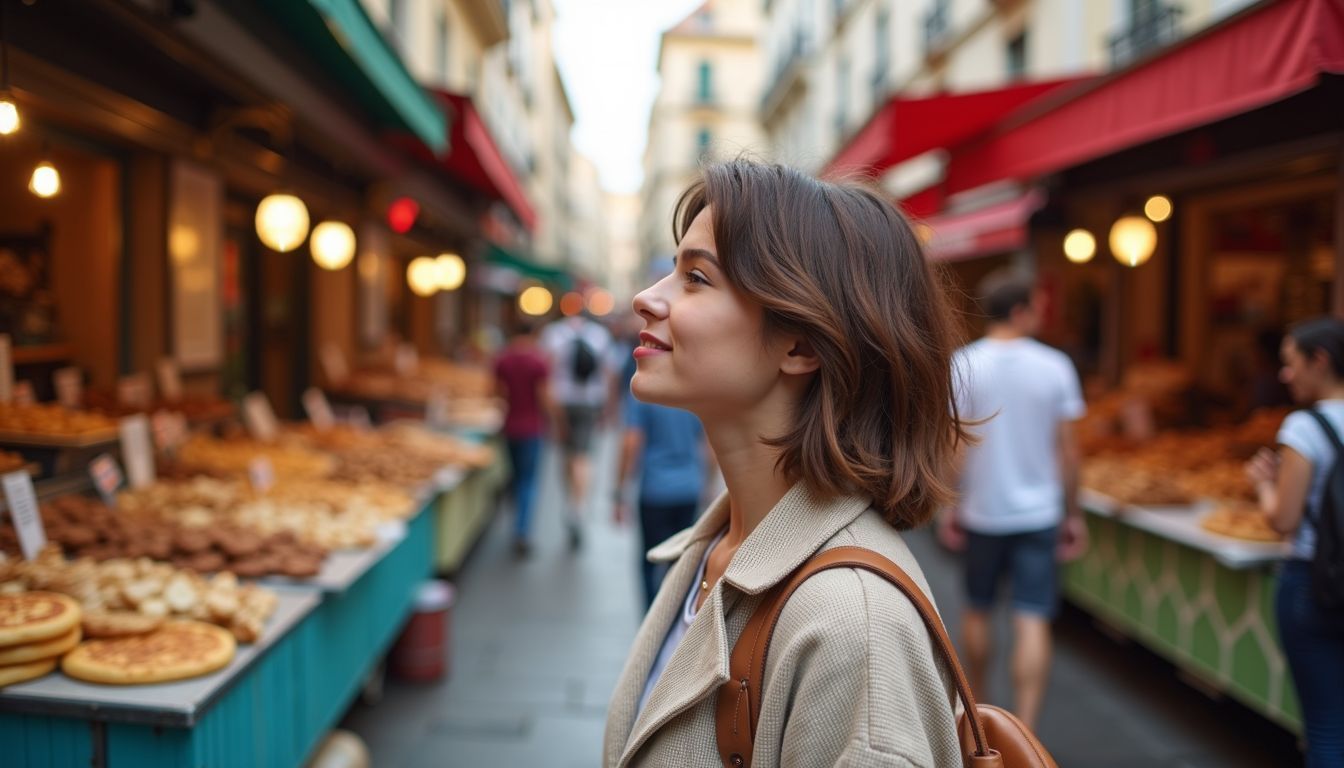
I once had a 10-hour layover in Istanbul. I decided to explore the local food scene. Airport lounges can be cosy, but nothing beats stepping out for fresh air and tasty bites.
At first, I worried about taxi scams. Instead, I used public transportation to reach the Grand Bazaar. The Turkish lira stretched far here! Fresh bread, kebabs, and sweets filled my stomach without emptying my wallet.
If layovers stress you out, plan ahead. Research eateries close to your transit airport. For example, find places using apps like Yelp or TripAdvisor before landing.
Also check if your credit card offers cashback on travel expenses like meals or taxis—saving money is always nice! With some research and planning, even short stops become delightful adventures.
Conclusion

Choosing between cash and card when exploring food markets abroad depends on your needs. Cash is great for controlling your budget and avoiding extra fees. Cards add security and give easy expense records.
Knowing how the local currency works helps too. Both options have their benefits, so pick what feels best for each trip!
For more tips on how to turn your layover into a culinary journey, click here: Maximising Your Layover with Foodie Adventures.
FAQs
1. Should I use cash or card when exploring food markets abroad?
When exploring food markets abroad, both cash and cards have their pros and cons. Cash is often preferred for small purchases, while credit cards can be handy for larger expenditures.
2. What are the benefits of using a credit card in foreign countries?
Using a credit card offers convenience and security. Many cards like Amex Centurion provide rewards such as cashback or access to Centurion Lounges at airports.
3. How do currency conversions affect my spending?
Currency conversions can impact your costs due to fluctuating exchange rates and potential fees from your bank or credit card company.
4. Are there any fees associated with ATM withdrawals overseas?
Yes, some banks charge fees for ATM withdrawals abroad. It’s wise to check with your bank about these charges before you travel.
5. Is it safe to carry large amounts of cash when travelling?
Carrying large sums of money isn’t recommended due to theft risks; instead, consider using travellers’ cheques or pre-paid cards like those offered by Starling Bank.
6. Do I need travel insurance for financial protection while traveling?
Travel insurance is important as it covers unforeseen expenses like medical emergencies, lost luggage, or trip cancellations that could otherwise strain your finances.